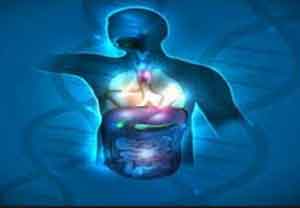- Home
- Editorial
- News
- Practice Guidelines
- Anesthesiology Guidelines
- Cancer Guidelines
- Cardiac Sciences Guidelines
- Critical Care Guidelines
- Dentistry Guidelines
- Dermatology Guidelines
- Diabetes and Endo Guidelines
- Diagnostics Guidelines
- ENT Guidelines
- Featured Practice Guidelines
- Gastroenterology Guidelines
- Geriatrics Guidelines
- Medicine Guidelines
- Nephrology Guidelines
- Neurosciences Guidelines
- Obs and Gynae Guidelines
- Ophthalmology Guidelines
- Orthopaedics Guidelines
- Paediatrics Guidelines
- Psychiatry Guidelines
- Pulmonology Guidelines
- Radiology Guidelines
- Surgery Guidelines
- Urology Guidelines
Teens also at risk for organ damage from high blood pressure

Organ damage from high blood pressure doesn't only occur in adults; it can also happen in teenagers, according to research presented at the American Heart Association (AHA) Council on Hypertension, AHA Council on Kidney in Cardiovascular Disease, American Society of Hypertension Joint Scientific Sessions 2017 in San Francisco.
And the damage to the heart and blood vessels can occur in youth at blood pressure levels that are below the clinical definition of hypertension in youth.
High blood pressure in youth is defined differently than it is in adults. In childhood, high blood pressure is based on percentiles, rather than blood pressure level. Researchers looked at whether organ damage in teens develops below the 95th percentile, which is the clinical definition of high blood pressure in youth.
Researchers studied blood pressure and measured organ damage in 180 teenagers (14-17 years old, 64 percent white, 57 percent males). They found evidence of organ damage even among the youth categorized as "normal" with blood pressure less than in the 80th percentile. They also found heart and vessel damage in the mid-risk group, which had blood pressures in the 80th to 90th percentiles and the high-risk group, with blood pressures above the 90th percentile.
"Some adolescents may have organ damage related to blood pressure and are not targeted for therapy," said Elaine M. Urbina, M.D., M.S., study author and director of preventive cardiology at Cincinnati Children's Hospital Medical Center in Ohio. "Imaging of the heart may be useful in youth in the high-normal range of blood pressure to determine how aggressive therapy should be."

Disclaimer: This site is primarily intended for healthcare professionals. Any content/information on this website does not replace the advice of medical and/or health professionals and should not be construed as medical/diagnostic advice/endorsement or prescription. Use of this site is subject to our terms of use, privacy policy, advertisement policy. © 2020 Minerva Medical Treatment Pvt Ltd